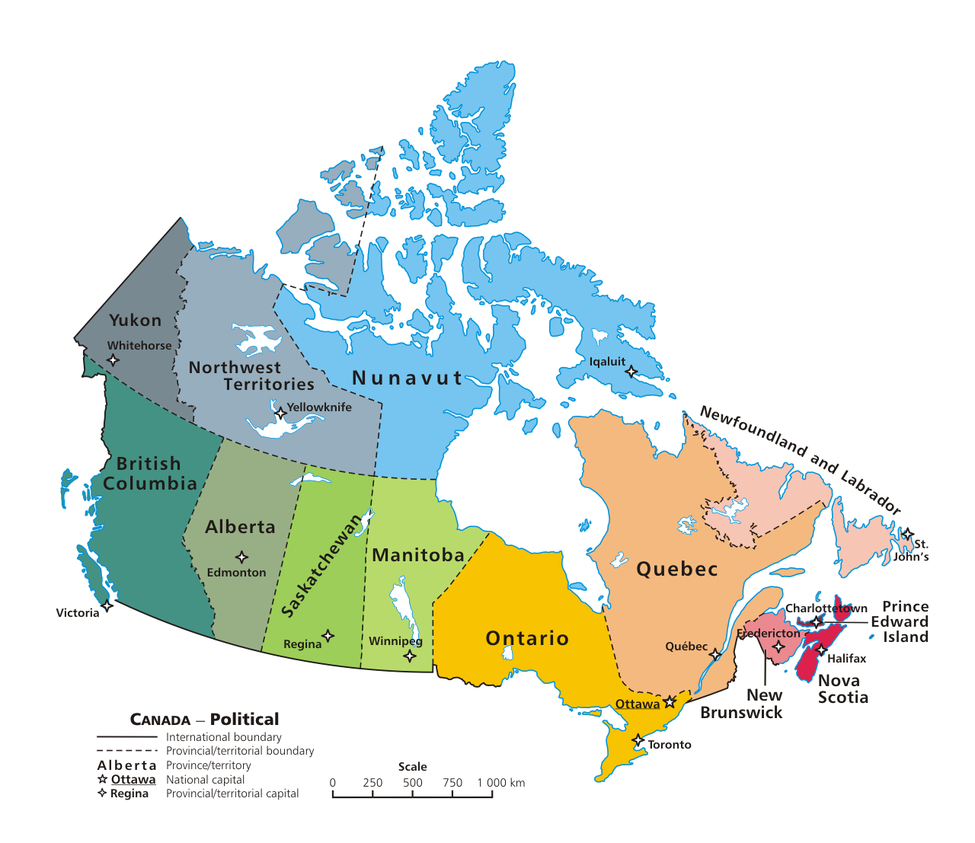
Canada is one of the most preferred destinations for Indian students to study and settle. Over years millions of Indians have settled in Canada. Canada is a developed country with plenty of job opportunities. Main provinces in Canada where Indians go are Ontario and British Columbia with primary cities as Toronto, Vancouver and Ottawa. One can study and settle in Canada for 10-12 Lakhs INR.
Courses and Exams
Indian student go to Canada for both Undergraduate and Post-graduate courses in Business; Science and Engineering. Students need to clear class 12th (with 65% marks) for UG admission and bachelors (with 55% marks) for PG admission. English test IELTS (International English Language Testing System) needs to be given by every student looking to study in Canada. For UG one needs to score 6 in IELTS and for PG 6.5 in IELTS
Education and Living cost
Education cost for UG is around 15 lakhs INR for 3 years while for PG is around 12 lakhs INR for 2 years. Accommodation and Food is the main living cost incurred by students. All universities and colleges provide accommodation to the students. Most of the students don’t take them as they prefer to take off campus accommodation which is lesser than the price of On Campus. Many students prefer to live outside campus to share the lower cost of living with friends. There are ample options of Food for Indians and most Canadian cities have Indian restaurants and shops. Per year living cost is around 5 lakhs INR. Hence total cost for UG would be around 30 lakhs INR and PG would be around 22 lakhs INR.
Part-time Jobs
Canada treats students as adults and provides them ample opportunities to learn and earn. Many part-time jobs are available for students within the campus and also around the campus. In Canada these part-time jobs are considered very respectful and also give a student a real life experience at work. This also enables student to earn their living cost and also understand the value of money. These jobs are like being accountants / cashier, managers at stores, sales people for different companies etc. Money is earned on hourly basis and minimum amount is pre decided. To make sure that student focus on study the government has restricted the part time job to only 20 hours per week. Typically a student can earn more than 6 lakh INR per year.
Availability of Finances
Finances – for college admission there is a process called GIC (bank account) in which you have to keep 1 year of living cost 5 Lakh INR. Apart from this 1st Semester tuition cost – around 3-4 Lakh INR need to be transferred on confirmation of admission. Hence funds with around 10 Lakh INR. Funds can be fresh in your bank account and shouldn’t be old unlike other countries like US and UK.
Job and Post study work-permit & Permanent Residency
After completing 2 years of full time Diploma or Degree in Canada a student get up to 3 years of work permit. During this work permit the day student gains 12 month of Full Time work experience or 1560 hours of working he is eligible to apply for Permanent residency. IT is called Ontario Immigration Nominee program. It takes 3 – 9 months to have it. Detailed process as mentioned by Canadian government is present here –
http://www.ontarioimmigration.ca/en/pnp/OI_PNPSTUDENTS_MASTERS.html
COST OF EDUCATION IN CANADA
Not just studying in Canada, but moving to a different country for your education comes with a whole lot of baggage and planning. Expenditure is one of the core aspects to look into since the economies of countries are highly variable. The student must be sure beforehand that he/she can conveniently afford the minimum living costs of the place along with the college fee. Thus, to make the process easier, we’ve compiled our research to present estimated costs of studying in Canada, so that the student can move on to focus on the next step of their stay in the country.
TUITION FEE
This is going to be the primary expenditure a student has to face and will probably be one of the highest they come across. Although the amount of tuition fee would largely depend on the course and the university, along with any scholarships granted to the applicant. An indicative idea would be somewhere between CAD 13,000 – 35,000. Anyone who’s already gotten into a college would be aware of the fee structure, and anyone planning to apply to should look into its tuition fee before concluding. A comprehensive list of the annual tuition fee of each program is mentioned below in CAD:
- MBA (30,000 – 40,000)
- Undergraduate (13,000 – 20,000)
- Postgraduate (17,000 – 25,000)
- Doctoral (7,000 – 15,000)
Similar to most countries, generalized courses such as humanities and education courses are cheaper whereas specialized courses such as engineering and medicine are likely to be relatively more expensive. Similarly, post-graduate courses are much more expensive than undergraduate courses on a per annum scale but shorter in duration. It is highly recommended to also apply for scholarships, you never know when you get lucky!
VISA COSTS
It is best to consult a counsellor regarding the student visa process as it must not fiddled with. A valid student comes with its own costs and can cost anywhere around CAD 150.
ACCOMMODATION COSTS
It is preferable that students, especially international ones, opt for on-campus accommodation facilities. It is not only much more affordable, but it would be much easier for you to connect with those around you as well as suit your educational requirements. Being around both international and native students from similar courses will enhance social life, bring you easy help and allow you to settle conveniently in a country you are absolutely clueless about – in short, it’s a great way to make friends quickly!
The only challenge posed is that not everyone would get to have access to this facility, which is primarily decided either based on score or a first-cum-first-serve basis. It is essential to book a slot for yourself as early as possible, which should cost around CAD 8,000 – 10,000 annually.
If a student desires to live off-campus, the most common options include renting an apartment with shared room-mates (generally from the same university or ethnicity), or a homestay with a local family. A home stay generally consists of a placement fee of CAD 200 and a monthly fee of CAD 750-950 for food and the room, whereas shared rental apartments cost anywhere around CAD 400-700 per month. These charges can greatly vary based on the city one moves to so it’s also important to look at the city’s cost of living carefully to get a better idea.
LIVING EXPENSES
Living expenses cover a variety of sub-categories but essentially refer to all things that you need to survive in a city such as food, transportation, toiletries, social activities etc. It is a good practice to set a budget beforehand and document each expense so as to not overspend. Considering all costs, a student is Canada generally carries a total of CAD 15,000.
Some special segments of these costs include taking into consideration communication expenses, books and supplies, and personal expenses and incidentals. Most international students will be calling back home; thus, it is important to segment and keep money aside for phone bills and data expenses. Most international communication can happen via the internet to avoid additional charges. There are also a lot of cost-effective plans as well as student plans to opt for, where the average cost would be CAD 20.
Books are fairly expensive – engineering textbooks can cost CAD 250-350, whereas books for medical and law cost even more. In the digital world, people can try obtaining pdfs of assigned books or alternatives, get them printed or but shared books with college mates to cut down on the expenditure further, if needed. Personal expenditure is a direct by-product of the kind of lifestyle the student chooses to live, and shall solely be decided by you.
An outline into transportation: Students generally have two options – either the college provides a shuttle services to and fro or the student would use public transportation
Transportation would be both short distance (regional trains, buses and subways) and long distance (buses, railways and flights). For short-distance travel, it is best to sign up for monthly passes which can be fairly cheap. Short distance commuting should have a place of about CAD 80-110 per month in the budget. A buffer amount should be kept for long-distance travel occasionally.
HEALTH INSURANCE
Health insurance is a mandatory, so don’t even plan to skip on this. Enrolling for a medical insurance is priced an approximate of CAD 600-900 per annum for international students. Some provinces such as British Columbia, Quebec, Alberta, Newfoundland, Manitoba, Labrador or Saskatchewan, students are insured as per the length of their stay.
TAXES
Most college students prefer working part-time, alongside their education, to ease the burden of expenses. To work in Canada, an SIN or a Social Insurance Number is to be generated and acquired which permits the student to work for 20 hours per week during academic sessions and full-time during vacations. This earned income is taxable, and should not be ignored.
The budgeting process involved varies on a lot of factors and there will be a high influx based on exchange rate variations. This makes a part-time job and scholarships a must during your stay in Canada.
Please click below for the Study and Settle Abroad brochure
For more information, You can contact us at info@gkworks.in or call 9643362320 to Schedule an appointment or Contact your nearest branch now
Following might help you as well.
SETTLE ABROAD
Skilled Immigration
Study and Settle Abroad
How to find your first job in Canada
Top 7 colleges in Melbourne Australia
MBBS ABROAD
Medical Admissions
- MBBS Abroad
- MBBS in China
- MBBS in Georgia
- MBBS in Kazakhstan
- MBBS in Kyrgyzstan
- MBBS in Philippines
- MBBS in Ukraine
- MBBS in Russia
- MBBS in Armenia
- MBBS in Belarus
- MBBS in Nepal
- MBBS in Bangladesh





